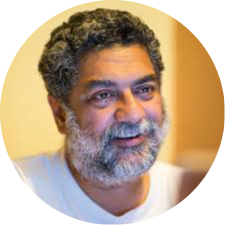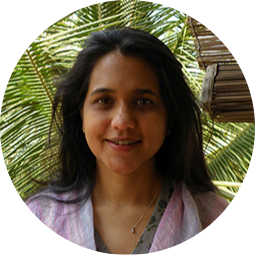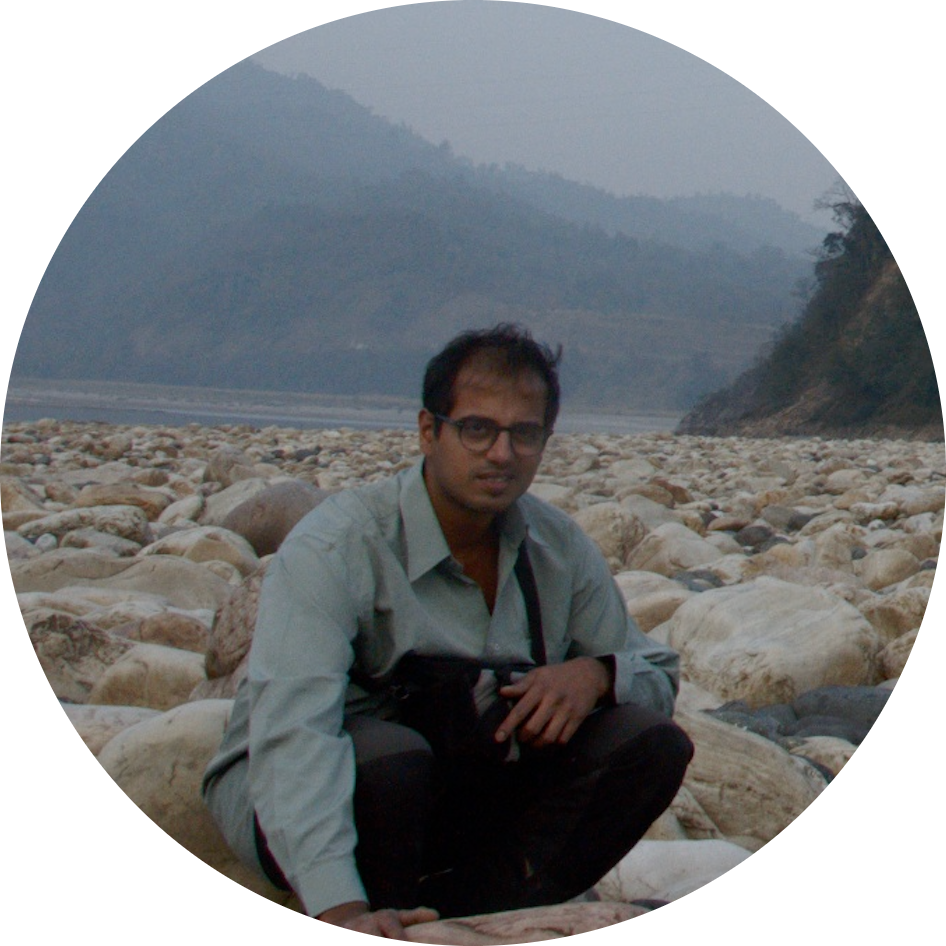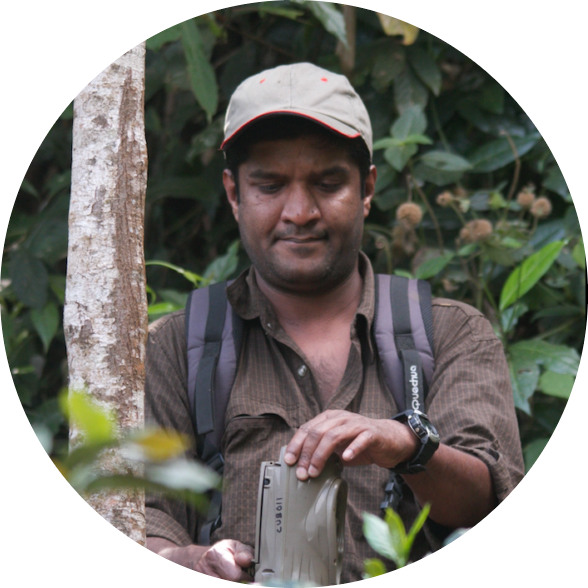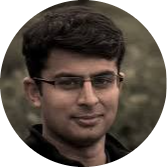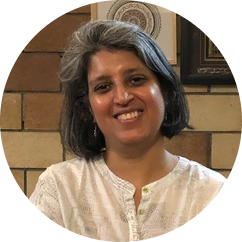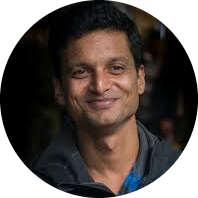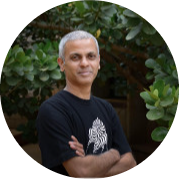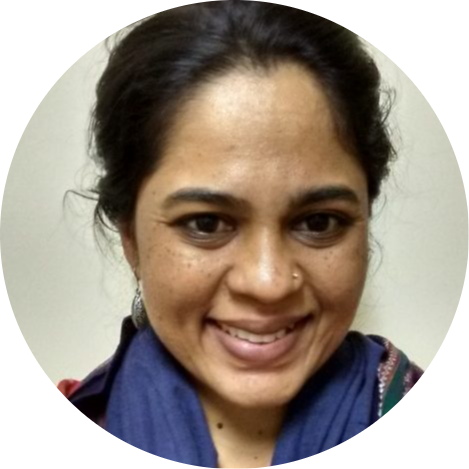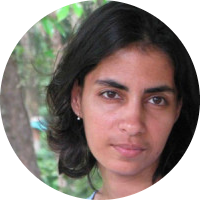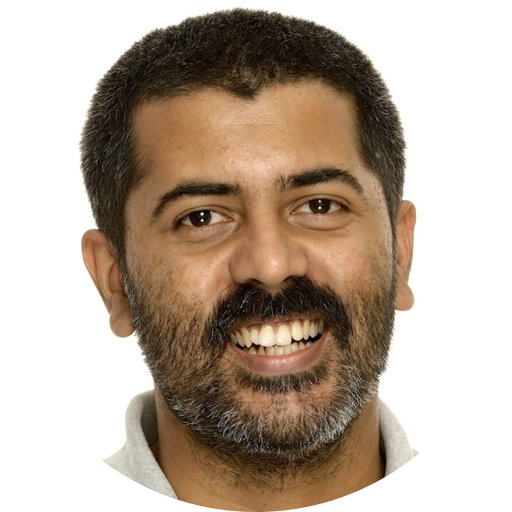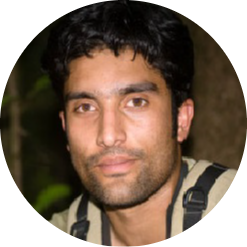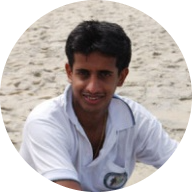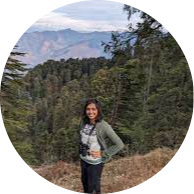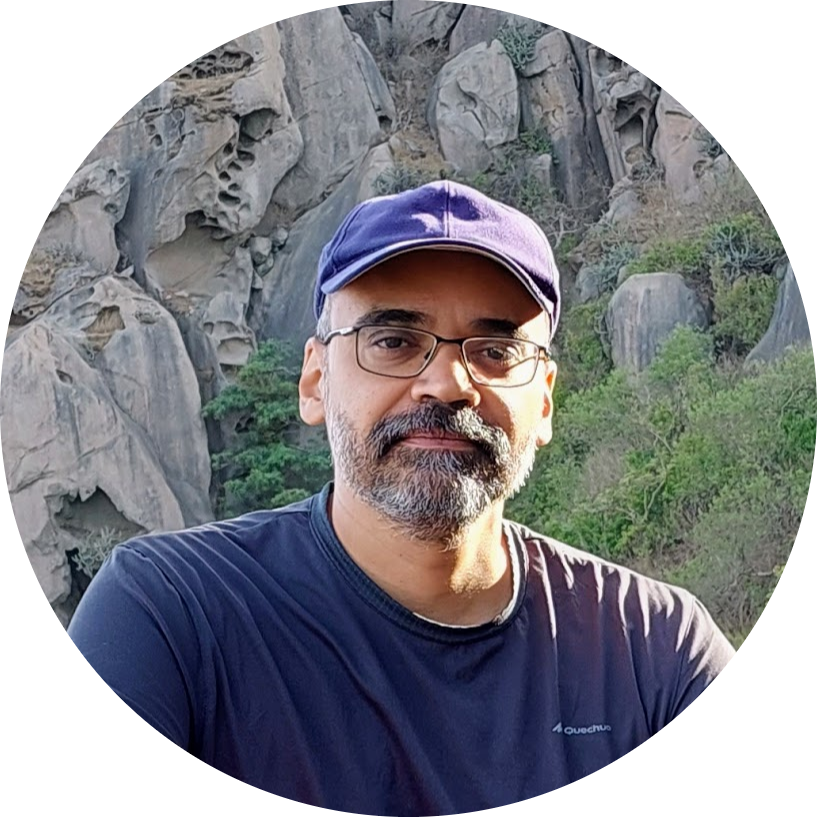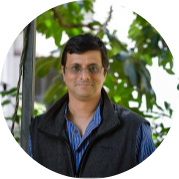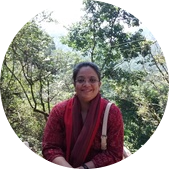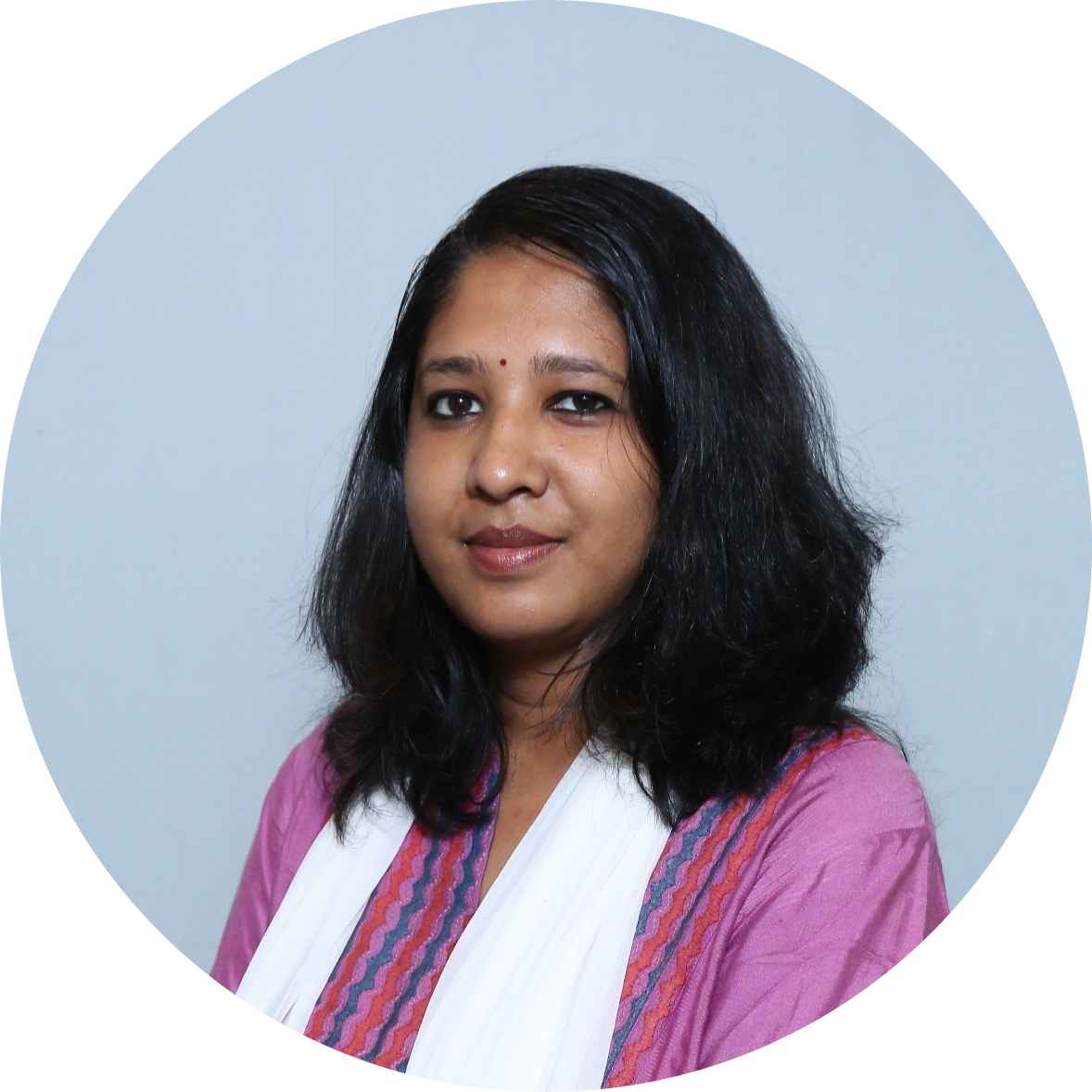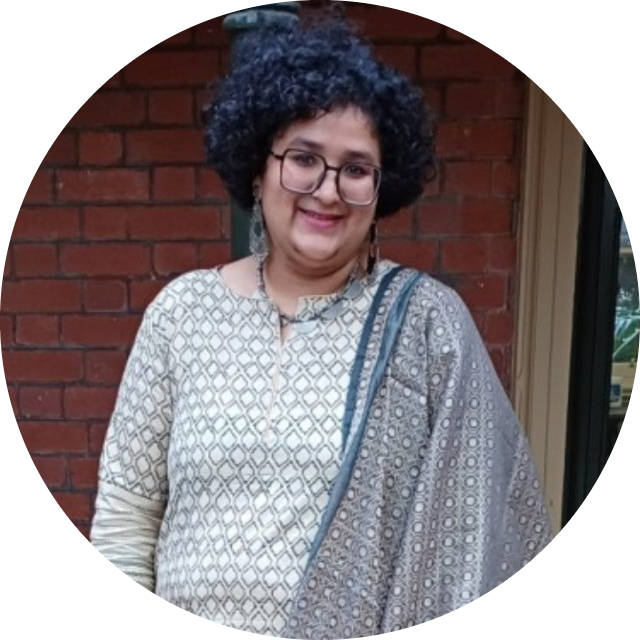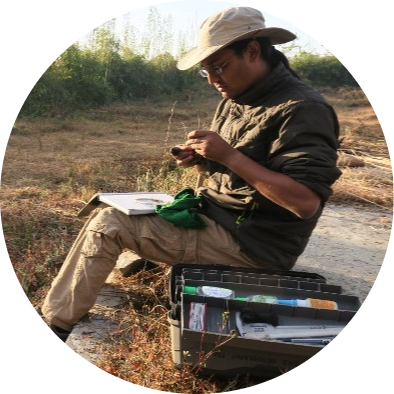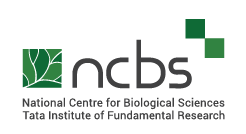Masters in Wildlife Biology & Conservation
You are here
Faculty
We draw faculty from researchers and practitioners in different fields of wildlife biology and conservation and allied disciplines.
The program meets its teaching requirements with a combination of faculty from NCBS, NCF, and other institutions both within and outside India. In addition, several academics, forest managers, conservation practitioners, policymakers, and members of the judiciary also give guest talks to the students throughout the year. The students are thus able to interact with a variety of academics and conservation practitioners and are exposed to the wide range of issues that affect the practice of this discipline.
Please follow the links provided to learn more about our faculty, their institutional affiliations, research interests, and areas of expertise.
Current Faculty

Dr. Aaron Lobo is an interdisciplinary marine conservation scientist working at the interface of conservation, livelihoods, and sustainable coastal development. At our program, he works closely with fellow faculty to create a curated marine biology course for our students.
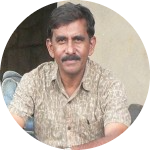
Dr. Ajith Kumar was Faculty at the Wildlife Institute of India and Salim Ali Centre for Ornithology and Natural History, and was the Director of this program from 2003 to 2020. He is presently an Affiliate Scientist at the Centre for Wildlife Studies, Bangalore.
Dr Anindya Sinha's wide-ranging research interests are in the areas of behavioural ecology and cognitive psychology of primates, animal molecular genetics, evolutionary biology, conservation biology, and the philosophy of biology. At the master's program, he teaches Behavioral ecology and Philosophy of Science and Conservation.
Dr Arundhati Das is a landscape ecologist studying forest woody plant communities and the impacts of anthropogenic global change on them. She is particularly interested in the application of spatially explicit analytical methods in ecology and conservation. At our program, she teaches GIS and remote sensing.
Chintan Sheth studies biodiversity, forest management and ecological anthropology in the Eastern Himalaya. He works extensively with forest dwelling communities to document their ethnozoology, agriculture, arboriculture and vegeculture. He has worked on mapping forest and savanna vegetation types in India, and natural hazards and their effects on societies in South Asia. Chintan teaches GIS and Remote Sensing in the course.
Dr Devcharan Jathanna has extensive experience in designing and conducting academic courses, technical workshops and field training programs, for field research staff, MSc & Ph.D. students and faculty in India, southeast Asia and central Asia, since 2006. He specialises in distance sampling, capture-recapture modeling, occupancy estimation, other statistical modeling, as well as study design and field data collection protocols for these different analytical approaches.
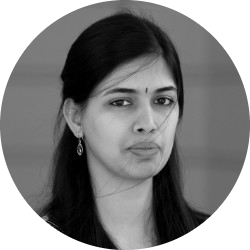
Dr. Divya Karnad is an alumnus of our program. She received her Ph.D. in Geography from Rutgers University, USA. She consulted with the Bay of Bengal Program, an inter-governmental organisation, and co-founded In Season Fish, a sustainable seafood initiative. She currently teaches a course on Conservation Social Sciences - Ethics and Methods and is a professor at Ashoka University.

Dr. Divya Vasudev is a senior scientist with Conservation Initiatives, an organization based in Northeast India, applying field knowledge and state-of-the-art scientific approaches to solve global conservation problems. She specialises in landscape-scale conservation, that is, the conservation of endangered species and ecosystems in large, complex, heterogeneous landscapes. She co-teaches modules in Population ecology and estimation and leads the Landscape ecology course.
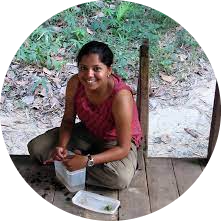
Dr Elrika D’souza is a marine biologist who studies plant-animal interactions within seagrass ecosystems. Her research explores the decline of dugong populations in the Andaman and Nicobar archipelago. Currently, her work focuses on understanding the dynamics of seagrass ecosystems and restoring seagrasses in the Lakshadweep archipelago. She teaches Marine Ecology.

Dr. Jagdish Krishnaswamy is interested in ecohydrology, landscape ecology, and applications of Bayesian statistics in ecology and environmental science. He applies these to questions about conservation planning, ecosystem services, and the response of ecosystems to climate variability and climate change. He is involved with teaching Advanced statistics and Freshwater ecology in our program.
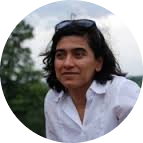
Dr. Jayashree Ratnam currently serves as Program Director of the Wildlife Biology and Conservation Program at the National Centre for Biological Sciences. She was Associate Director from 2014 to 2020. Following a Ph.D. from Syracuse University, USA, she worked as a research scientist at the Natural Resource Ecology Labs at Colorado State University, USA, and as a Facilitator for the Earth and Biosphere Institute, University of Leeds. She teaches Basic Ecology, Plant Animal Interactions, and a seminar-style readings course in Classical Papers in Ecology and Conservation Biology.
Mr. Kalyan Varma is a wildlife photographer, filmmaker, naturalist, and explorer specializing in environmental issues in India. He freelances with many of the world's leading magazines, environmental NGOs, and television channels like National Geographic and BBC. He teaches our students the basics of photography and wildlife filmmaking and the philosophy behind conservation photography.
Kanchi Kohli is a researcher, educator, and communicator of environmental law and policy. Her work areas cover the fields of environment, forest, and biodiversity regulation and governance in India. Her policy research and practice explores the links and gaps between law, development, sustainability, and environmental justice. She teaches the Conservation Law & Policy Management course.
Dr Kulbhushansingh Suryawanshi or Kullu, is a scientist and conservationist. Kullu is the Director of the India Program of the Snow Leopard Trust, and he is also a scientist with the Nature Conservation Foundation. His primary interest is in wildlife conservation through robust applied scientific research informing management and policy. Kullu teaches Conservation Ecology and Practice.
Dr. Mahesh Sankaran is an ecologist based at NCBS. He specializes in climate-vegetation-disturbance linkages and biodiversity-ecosystem function relationships. The core of his research seeks to uncover mechanisms underlying the distribution, structure, and function of savannas and grasslands worldwide, and to predict the ecological future of these biomes under global anthropogenic climatic forcing in the form of altered precipitation, temperature, elevated CO2, and nutrient deposition. At the program, Dr. Mahesh engages with the students and is closely involved in teaching multiple courses such as Advanced statistics, Community ecology, and Plant-Animal interactions.
Dr. Meera Anna Oommen holds a doctoral degree in life sciences from the University of Technology, Sydney. At Dakshin Foundation, Meera contributes to institutional growth by coordinating research activities, and institutional development of the Andaman Nicobar Environment Team (ANET). Her current work also focuses on research at the interface of environmental history, anthropology, and ecology, and their interactions in the context of traditional practices and species such as elephants and wild pigs. She teaches Environmental history.
Dr. Naveen Namboothri is one of the founders and trustees of Dakshin Foundation and currently serves as its Director. Trained as a marine biologist, he has worked in diverse coastal, marine, and island systems across India. His engagement cuts across regional, national, and local agencies including government and non-government sectors. He co-teaches the Marine ecology course.
Dr Priti Bangal researches the intersection of Community Ecology and Animal Behaviour. She studied interactions within mixed-species animal groups, how they influence community composition and the importance of some functional links in these groups in the mixed-species bird flocks system for her PhD. Priti is interested in science education, writing and teaching and teaches Research Methodology, Basic Statistics, and Study Design in the course.
Dr.Pritha Dey is a moth-biologist.She is largely interested in the diversity, distribution, and evolutionary ecology of moths.Apart from the role of the Facility-in-charge, she is also the curator for Lepidoptera specimens in the Research Collections. She co-teaches Invertebrate Ecology.
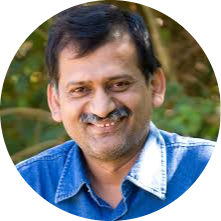
Dr. Ravi Chellam is currently the CEO of Metastring Foundation since 2018. His research interests include the conservation of wildlife and biodiversity outside the Protected Areas, human-wildlife conflicts, and urban ecology. At the program, he engages with the students and teaches a course on Conservation Law, Policy, and Management.
Dr. Rohan Arthur is a senior scientist and founding trustee of the Nature Conservation Foundation (NCF) in Karnataka, India. He heads NCF’s Oceans and Coasts program, an interdisciplinary group that works on a range of issues, including understanding human-wildlife interactions in aquatic environments. At the program, he has been teaching Marine ecology as part of the master's course.
Dr. Sandeep Pulla is a plant ecologist and computer scientist. He is presently the Science Manager for the Ministry of Environment Forest and Climate Change's 'Long-Term Ecological Observatories' (LTEO) program. He teaches Mathematics and Advanced statistics in the program.
Dr. Sanjay Sane's laboratory combines input from physics, engineering, biomechanics, neurobiology, muscle mechanics, and behavioural biology to address diverse insect flight-related phenomena. To study these questions, they use diverse techniques such as high-speed videography, behavioural measurements, neuroanatomy, and neurophysiology. At NCBS, he is currently the Scientific Dean and also is faculty at our program where he teaches Invertebrate ecology.
Shomona Khanna is an Advocate practicing in the Supreme Court of India and Delhi High Court, and has been associated with numerous civil and democratic rights issues since 1991, both as a lawyer and as a writer. She teaches Conservation Law, Policy, and Management.
Shyama Kuriakose is a lawyer and Policy Lead within the Marine Program of Wildlife Conservation Society-India (WCS-India). She has twelve years of experience researching on enviro-legal subjects ranging from biodiversity, wildlife and forest conservation, and forest rights to issues of urban governance such as commons, waste management, and water conservation from the lens of gender justice and human rights. She teaches Conservation Law, Policy, and Management.
Stella James is a lawyer working for environment and climate policy action and advocacy. She has worked in collaboration with local governments, grassroots organisations, community members and students to organise events, workshops, and written materials to advocate for stronger environmental policies and community participation at multiple levels. She teaches the Conservation Law, Policy, and Management course.
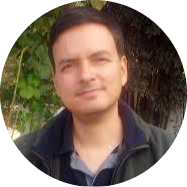 Dr. Suhel Quader is interested in engaging with the larger public to better understand the natural world and how it is changing. He has a formal background and training in the field of animal behaviour and evolutionary ecology. Over the years, he has studied various aspects of animal behaviour: flocking in Cinereous Tits, mate choice in Baya Weavers, and brood parasitism by Koels on Crows. At NCBS, he teaches the masters students of our program a course on Study design, Basic statistics, and Research methodology.
Dr. Suhel Quader is interested in engaging with the larger public to better understand the natural world and how it is changing. He has a formal background and training in the field of animal behaviour and evolutionary ecology. Over the years, he has studied various aspects of animal behaviour: flocking in Cinereous Tits, mate choice in Baya Weavers, and brood parasitism by Koels on Crows. At NCBS, he teaches the masters students of our program a course on Study design, Basic statistics, and Research methodology.
 Dr. Teresa Pedrola Alcoverro's current research interests examine (1) the role of biotic processes, and human perturbations, in controlling the flow of energy among trophic levels both within and between marine habitats, with emphasis on submerged vegetated habitats, (2) the use of bioindicators in seagrass ecosystems to detect water quality assessment and ecosystem change. For our students, she leactures on seagrass and benthic systems as part of the Marine ecology course conducted during the master’s course.
Dr. Teresa Pedrola Alcoverro's current research interests examine (1) the role of biotic processes, and human perturbations, in controlling the flow of energy among trophic levels both within and between marine habitats, with emphasis on submerged vegetated habitats, (2) the use of bioindicators in seagrass ecosystems to detect water quality assessment and ecosystem change. For our students, she leactures on seagrass and benthic systems as part of the Marine ecology course conducted during the master’s course.
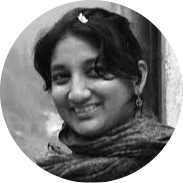
Dr. Uma Ramakrishnan is an Indian molecular ecologist and professor at the National Centre for Biological Sciences, Bangalore. Her research investigates population genetics and the evolutionary history of mammals in the Indian subcontinent, including work to save India’s tigers. She is a professor NCBS and teaches Evolution and Biogeography and Conservation genetics to our master's students.
Dr. Umesh Srinivasan is an Assistant Professor at the Centre for Ecological Science, Indian Institute of Science (CES-IISc), Bangalore. He completed postdoctoral research at Princeton University, prior to which he completed his PhD & Master's at NCBS. The doctor in parenthesis refers to an MBBS he did before he became obsessed with ecology and conservation! Dr. Umesh is primarily interested in all forms of global change (especially land use and climate change) and the impacts of global change on biodiversity. At our program he teaches our students the facets of Community ecology.
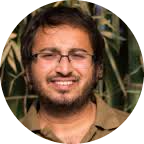
Dr. Varun Goswami is a senior scientist with Conservation Initiatives, an organization based in Northeast India. His research straddles the fields of ecology and conservation biology, with a particular focus on applied population, landscape, and behavioural ecology. A lot of his work is on threatened large mammals and in heterogenous landscapes with a strong human–wildlife interface. He and his team often investigate questions of interest using quantitative approaches such as capture–recapture, occupancy and matrix population models.
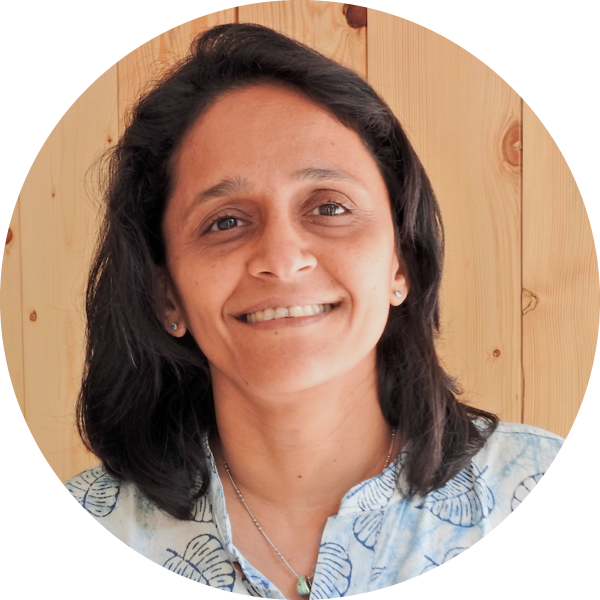
Dr Vidya Athreya is the Director and Head of Science and Conservation at WCS-India. Vidya works closely with Protected Area managers and the public to mitigate conflicts involving big cats. A member of the IUCN Cat Specialist Group, she has assisted in formulating state and national-level policy guidelines on managing human-leopard conflict. Vidya’s research work has led to an increased awareness of large carnivores outside Protected Areas in India.
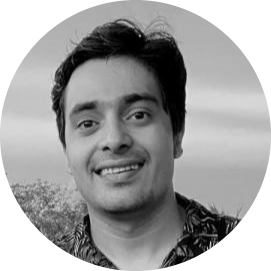
Dr. Vivek Ramachandran is Academic Fellow at the Wildlife Biology and Conservation Program, National Centre for Biological Sciences. His interests are in the ecology and distribution of lesser-known taxa especially, small mammals and endangered species research and conservation. He teaches Vertebrate Ecology and leads the field components of the program.
Past Faculty
